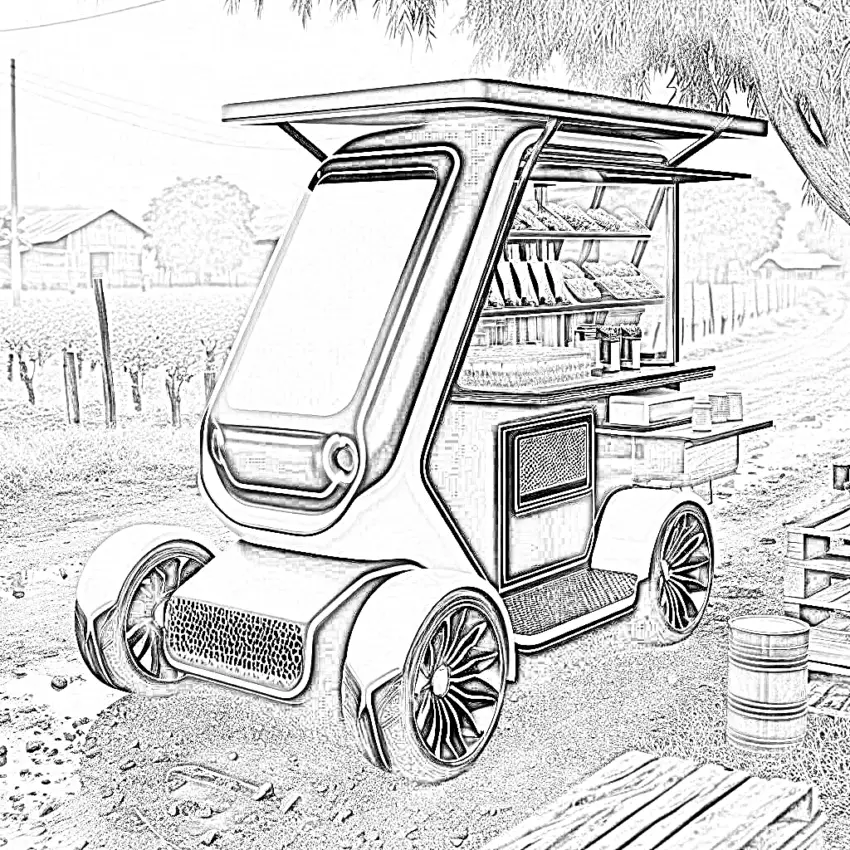Street food is the heartbeat of local communities. In many rural areas and slums in developing countries, vendors rely on old, decrepit handcarts. These carts are heavy, hard to move, and not designed for modern needs. Many vendors work long hours but earn very little. Hygiene is also a big issue. Without clean water or proper storage, food safety is at risk. Customers may hesitate to buy, and vendors struggle to improve their businesses.
As I traveled, I saw these challenges firsthand. From busy cities to remote villages, street vendors face the same problems. That’s why I believe innovation in this area is crucial. Startups have a golden opportunity to transform these outdated carts into modern, smart food carts. With better design, built-in hygiene features, and lightweight, mobile structures, vendors can work more efficiently, sell more, and improve their lives. These innovations won’t just help individuals—they can uplift entire communities.
A New Frontier for Local Entrepreneurs
Innovation is not just for high-tech cities. It starts on the streets. Small food vendors, selling everything from coconuts to sandwiches, show great potential. They work hard every day. However, many face challenges like poor hygiene and outdated equipment. Startups can step in and help.
Tackling Daily Challenges
Street food vendors often struggle with:
- Hygiene issues: Without proper sanitation, food safety is at risk.
- Inefficient equipment: Basic handcarts are not designed for modern needs.
- Limited mobility: Traditional carts cannot keep up with urban dynamics.
These problems need smart, practical solutions. For example, a food cart with a built-in handwashing station can make a big difference. Moreover, integrating waste recycling features can turn trash into fuel. This change not only protects health but also the environment.

Embracing Modern Technology
Imagine a food cart that is:
- Self-driving or partly electric: It saves time and energy.
- Equipped with IoT sensors: Vendors can monitor hygiene and equipment performance.
- Specialized for each food type: Whether it’s tea, sandwiches, or coconuts, every cart can be customized.
Startups can design carts that include an attached bicycle for extra mobility. Such innovations can help vendors reach more customers. They can also lower operating costs and improve food quality.
Opportunities for Startups and Local Talent
Local innovators are a powerhouse of ideas. Smart youth in these regions understand their community’s needs. They can develop practical solutions for everyday challenges. Startups can partner with them to build affordable, efficient food carts. This collaboration can attract venture capital and even government support.
Additionally, targeted funding and tax incentives can lower risks for startups. Governments have a vested interest in promoting public health and economic inclusion. With the right support, these modern food carts can go global.
Conclusion
Street food vendors in developing countries deserve better. They work with limited resources yet serve priceless local flavors. Modern food carts, equipped with smart technology and sustainability features, can revolutionize this industry. Startups have the chance to create tailored solutions for each type of vendor. In doing so, they help local communities thrive and solve global market challenges.
Integrating modern enhancements can be a game-changer for food producers working in challenging conditions—whether in crowded slums, small home kitchens, garages, or street stalls with little to no hygiene measures. By adopting affordable and smart technologies, these entrepreneurs can boost food safety and efficiency. Moreover, this approach isn’t just limited to the food sector; it offers a blueprint for addressing various everyday challenges, from improving public health to fostering sustainable community growth.
By turning old handcarts into smart, efficient food carts, we can spark innovation from the grassroots. This is a win for vendors, local youth, and the global market alike.
This blog post was written with the assistance of Copilot and ChatGPT, based on ideas and insights from Edgar Khachatryan. Photos from Pexels.
